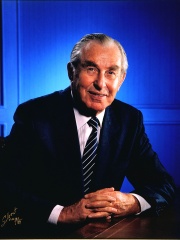
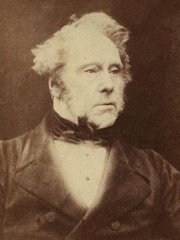
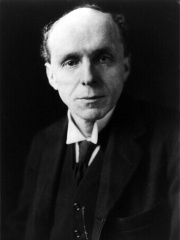
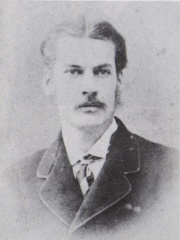
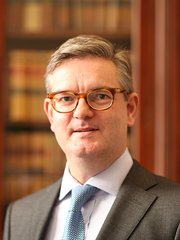
The Most Famous
DIPLOMATS from United Kingdom
This page contains a list of the greatest British Diplomats. The pantheon dataset contains 90 Diplomats, 6 of which were born in United Kingdom. This makes United Kingdom the birth place of the 2nd most number of Diplomats.
Top 6
The following people are considered by Pantheon to be the most legendary British Diplomats of all time. This list of famous British Diplomats is sorted by HPI (Historical Popularity Index), a metric that aggregates information on a biography's online popularity.

1. Chaim Herzog (1918 - 1997)
With an HPI of 70.40, Chaim Herzog is the most famous British Diplomat. His biography has been translated into 49 different languages on wikipedia.
Chaim Herzog (Hebrew: חיים הרצוג; 17 September 1918 – 17 April 1997) was an Israeli politician, military officer, lawyer and author who served as President of Israel from 1983 to 1993. Born in Belfast and raised primarily in Dublin, the son of Ireland's Chief Rabbi Yitzhak HaLevi Herzog, he immigrated to Mandatory Palestine in 1935. He served in the Haganah Jewish paramilitary group during the 1936–1939 Arab revolt and in the British Army during World War II. Following the end of the British Mandate and Israel's Declaration of Independence in 1948, he served in the Israel Defense Forces and fought in the 1948 Arab–Israeli War. He remained in the Israeli military as an officer following the war until retiring in 1962 with the rank of major-general. After leaving the military, Herzog managed an industrial conglomerate and co-founded the Herzog, Fox & Ne'eman law firm, which would become one of Israel's largest law firms. Between 1975 and 1978 he served as Israel's Permanent Representative to the United Nations, in which capacity he denounced UN General Assembly Resolution 3379—the "Zionism is Racism" resolution—and symbolically tore it up before the assembly. Herzog entered politics in the 1981 elections, winning a Knesset seat as a member of the Alignment. Two years later, in March 1983, he was elected to the largely ceremonial role of President. He served for two five-year terms before retiring in 1993. He died four years later and was buried on Mount Herzl, Jerusalem. His son Isaac Herzog, who between 2013 and 2017 led the Israeli Labor Party and was the parliamentary Opposition in the Knesset, is the incumbent President of Israel. The pair are the first father and son to have served as the nation's president.

2. Henry John Temple, 3rd Viscount Palmerston (1784 - 1865)
With an HPI of 69.20, Henry John Temple, 3rd Viscount Palmerston is the 2nd most famous British Diplomat. His biography has been translated into 56 different languages.
Henry John Temple, 3rd Viscount Palmerston (20 October 1784 – 18 October 1865), known as Lord Palmerston, was a British Anglo-Irish politician who served as prime minister of the United Kingdom from 1855 to 1858 and from 1859 to his death in 1865. A member of the Tory, Whig and Liberal parties, Palmerston was also the first Liberal prime minister. An ideologue of "Free-Trade" and a major sponsor of the Opium Wars against the Chinese Empire and the war against Egypt, he dominated British foreign policy from 1830 to 1865 when Britain stood at the height of its imperial power. In 1802, Temple succeeded to his father's Irish peerage as the 3rd Viscount Palmerston. This Irish peerage did not entitle him to a seat in the House of Lords and Temple became a Tory MP in the House of Commons in 1807. From 1809 to 1828, he was Secretary at War, organising the finances of the army. He was Foreign Secretary from 1830–1834, 1835–1841 and 1846–1851, responding to a series of conflicts in Europe. In 1852, Palmerston became Home Secretary in the government of the Earl of Aberdeen. As home secretary, Palmerston enacted various social reforms, although he opposed electoral reform. When Aberdeen's coalition fell in 1855 over its handling of the Crimean War, Palmerston was the only man able to sustain a majority in Parliament, and he became prime minister. He had two periods in office, 1855–1858 and 1859–1865, before his death in 1865 at the age of 80 years. Palmerston is considered to have been the "first truly popular" prime minister. He remains the most recent British prime minister to die in office. Palmerston masterfully controlled public opinion by stimulating British nationalism. He was distrusted by Queen Victoria and most of the political leadership, but he received and sustained the favour of the press and the populace. Historians rank Palmerston as one of the greatest foreign secretaries, due to his handling of great crises, and commitments to the balance of power and British interests. His policies in relation to India, China, Italy, Belgium and Spain had extensive long-lasting beneficial consequences for Britain. However, Palmerston's leadership during the Opium Wars was questioned and denounced by other prominent statesmen. The consequences of the conquest of India have also been reconsidered with time.

3. Robert Cecil, 1st Viscount Cecil of Chelwood (1864 - 1958)
With an HPI of 67.22, Robert Cecil, 1st Viscount Cecil of Chelwood is the 3rd most famous British Diplomat. His biography has been translated into 51 different languages.
Edgar Algernon Robert Gascoyne-Cecil, 1st Viscount Cecil of Chelwood, (14 September 1864 – 24 November 1958), known as Lord Robert Cecil from 1868 to 1923, was a British lawyer, politician and diplomat. He was one of the architects of the League of Nations and a defender of it, whose service to the organisation saw him awarded the Nobel Peace Prize in 1937.

4. Ernest Mason Satow (1843 - 1929)
With an HPI of 58.92, Ernest Mason Satow is the 4th most famous British Diplomat. His biography has been translated into 16 different languages.
Sir Ernest Mason Satow (30 June 1843 – 26 August 1929), was a British diplomat, scholar and Japanologist. He is better known in Japan, where he was known as Satō Ainosuke (Japanese: 佐藤 愛之助/薩道 愛之助), than in Britain or the other countries in which he served as a diplomat. He was a key figure in late 19th-century Anglo-Japanese relations. Satow was influential in East Asia and Japan, particularly in the Bakumatsu (1853–1867) and Meiji (1868–1912) eras. He also served in China after the Boxer Rebellion (1900–1906), in Siam, Uruguay, and Morocco, and represented Britain at the Second Hague Peace Conference in 1907. In his retirement, he wrote A Guide to Diplomatic Practice. Now known as 'Satow's Guide to Diplomatic Practice', this manual is still widely used today, and has been updated several times by distinguished diplomats, notably Lord Gore-Booth. The sixth edition, edited by Sir Ivor Roberts, was published by Oxford University Press in 2009, and is over 700 pages long.
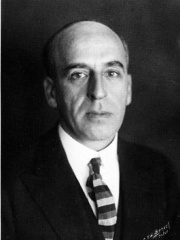
5. Seán Lester (1888 - 1959)
With an HPI of 56.10, Seán Lester is the 5th most famous British Diplomat. His biography has been translated into 18 different languages.
Seán Lester (28 September 1888 – 13 June 1959) was an Irish diplomat who was the last secretary-general of the League of Nations from 31 August 1940 to 18 April 1946.

6. Julian King (b. 1964)
With an HPI of 36.58, Julian King is the 6th most famous British Diplomat. His biography has been translated into 14 different languages.
Sir Julian Beresford King (born 22 August 1964) is a British diplomat and civil servant who served as the final British European Commissioner from 2016 to 2019 prior to Brexit, having previously served as the British ambassador to Ireland (2009–2011) and France (2016).
People
Pantheon has 6 people classified as British diplomats born between 1784 and 1964. Of these 6, 1 (16.67%) of them are still alive today. The most famous living British diplomats include Julian King. The most famous deceased British diplomats include Chaim Herzog, Henry John Temple, 3rd Viscount Palmerston, and Robert Cecil, 1st Viscount Cecil of Chelwood. As of April 2024, 1 new British diplomats have been added to Pantheon including Julian King.
Living British Diplomats
Go to all RankingsDeceased British Diplomats
Go to all RankingsChaim Herzog
1918 - 1997
HPI: 70.40
Henry John Temple, 3rd Viscount Palmerston
1784 - 1865
HPI: 69.20
Robert Cecil, 1st Viscount Cecil of Chelwood
1864 - 1958
HPI: 67.22
Ernest Mason Satow
1843 - 1929
HPI: 58.92
Seán Lester
1888 - 1959
HPI: 56.10
Newly Added British Diplomats (2025)
Go to all RankingsOverlapping Lives
Which Diplomats were alive at the same time? This visualization shows the lifespans of the 5 most globally memorable Diplomats since 1700.

